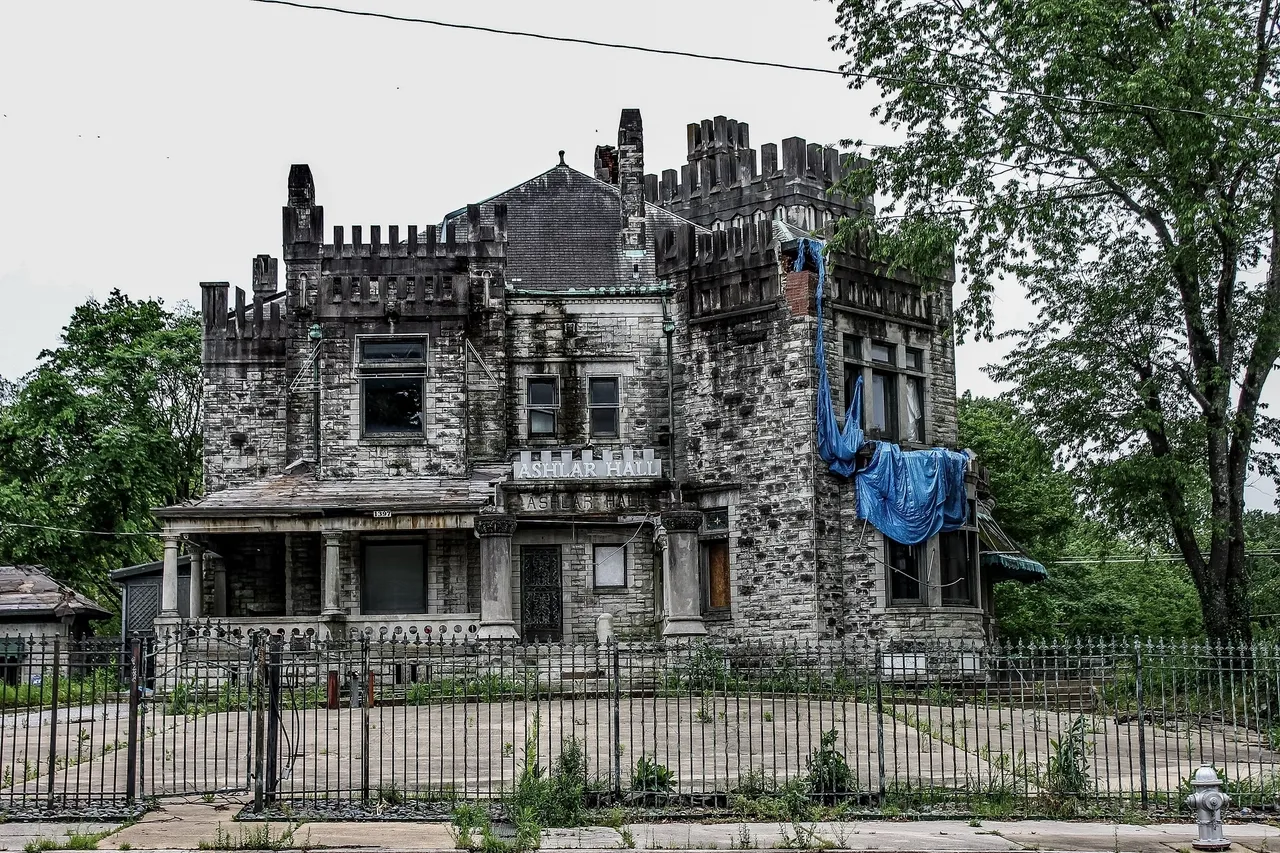Ashlar Hall, also known as Prince Mongo’s Castle, stands as a striking mock castle tucked away in Memphis, Tennessee. Its origins lie with Robert Brinkley Snowden, who, upon graduating from Princeton in 1890, returned home to create a grand residence for his family. Snowden, a prominent real estate developer, supervised the construction of Ashlar Hall, which was completed in 1896.
This impressive estate covers 11,000 square feet across two floors, featuring eight rooms along with a spacious basement and attic. The basement and attic served as quarters for servants and showcased stunning stained-glass windows imported from Italy. Adjacent to the house, there was a uniquely shaped swimming pool positioned to the southwest.
The construction of Ashlar Hall came with a price tag of approximately $25,000, which equates to around $725,000 in today’s currency. At the time, the Snowden property spanned a vast 3,000 acres, extending well into Mississippi.

Colonel Robert C. Brinkley, the great-grandfather of Robert Brinkley Snowden, laid the foundation for the Snowden family’s prominence in Memphis by establishing the Peabody Hotel several years earlier. By the early 1900s, the Snowdens were considered Memphis royalty, with Robert Brinkley Snowden himself gaining recognition as a top-notch real estate developer.
The mansion earned its name, Ashlar Hall, because it predominantly used Ashlar Stone, which was transported to the site via barges. Robert Brinkley Snowden lived in Ashlar Hall until his passing in 1942. After his wife’s death in 1957, the property changed hands and eventually became a restaurant by the 1960s. The bedrooms were repurposed into dining areas, and even the front lawn was paved to create more parking space. Ashlar Hall was listed on the National Register of Historic Places in 1983.
In 1990, the mansion came under the ownership of the eccentric Memphis personality, Robert “Prince Mongo” Hodges. Prince Mongo, known for his flamboyant persona and extravagant claims about his age and origins, turned Ashlar Hall into The Castle nightclub during the 1990s. The club, famous for its promotions of cheap beer and risqué contests, drew large crowds but gained notoriety for serving alcohol to minors. Sadly, in 1992, two teenagers lost their lives in a drunk driving accident after leaving The Castle.






Hodges adamantly maintained his innocence, insisting that he hadn’t committed any wrongdoing, and he was never formally charged with any offense. He found ways to maneuver around city regulations by putting the business under his employee’s name and retaining ownership of the property. Hodges claimed he acted solely as a landlord, collecting rent while remaining absent from the day-to-day operations.
Under pressure from nearby residents, the fire marshal slashed The Castle’s occupancy limit from 451 to 88. Consequently, the club was swiftly shut down for exceeding the permitted capacity. In a bold move, Prince Mongo responded by having 800 tons of sand dumped in the parking lot, relocating the festivities outdoors to sidestep the fire marshal’s directive.
Being his colorful self, Hodges sometimes entertained himself by standing on The Castle’s roof and howling at the moon, adding to his eccentric reputation.



After The Castle shut its doors, Ashlar Hall sat vacant for several years. Prince Mongo, grappling with numerous city code violations, decided to transfer ownership of the property to a close friend who allegedly operated a nonprofit supporting veterans. In 2013, Urban Renaissance Initiative acquired Ashlar Hall via a quitclaim deed from Robert Hodges.
The new owner hired a contractor to address the property’s issues, which included removing restaurant equipment still belonging to Prince Mongo and salvaging copper components from the roof and original stonework to sell. Unfortunately, these items were never recovered, resulting in a warrant being issued for the contractor’s arrest in 2015.


-Photo Credits By Leland Kent of Abandoned Southeast–
In November 2018, media reports highlighted the efforts of the new owner, Juan Montoya, in revitalizing the building. He projected that the total renovation expenses could amount to $400,000, envisioning the property as a potential venue for events or office space. By April 2019, Ashlar Hall welcomed the Memphis theatrical group Lost In Found’s production of “Rites of Spring.”

